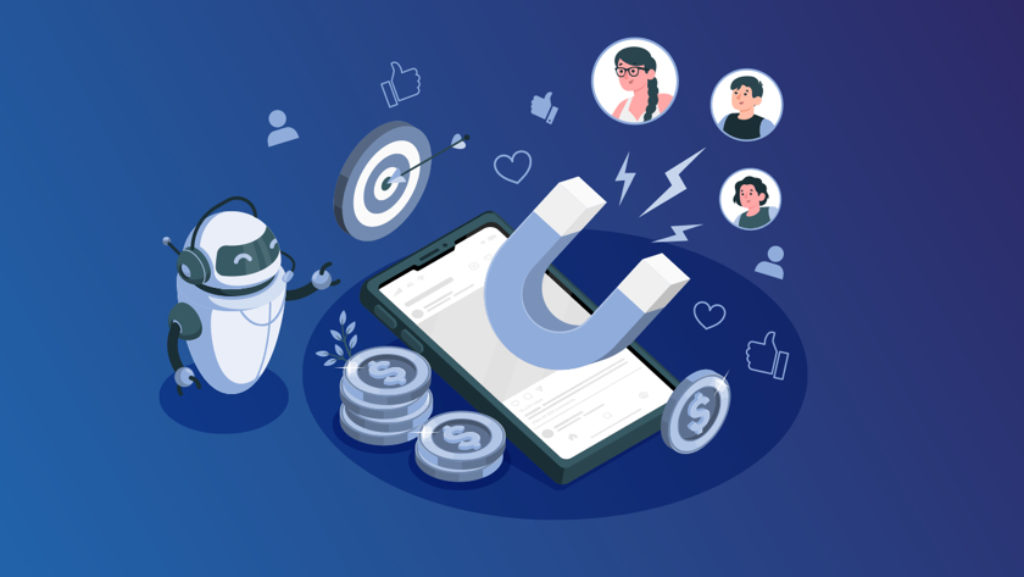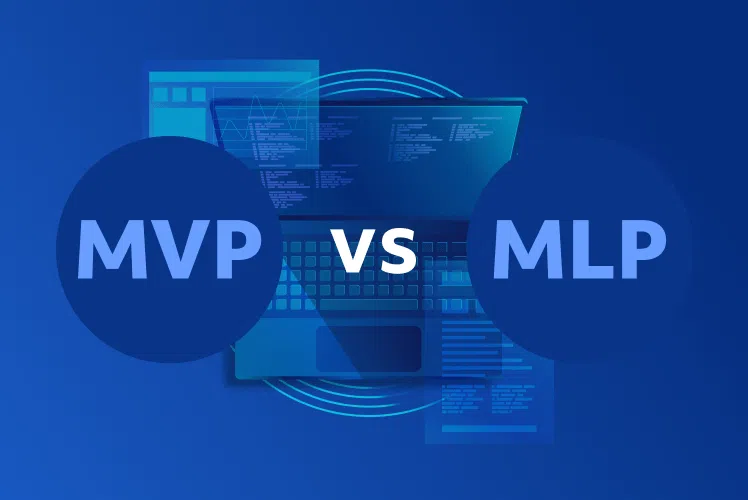Table of Contents
Lead generation remains an acute issue for most (if not all) companies since the market is simply saturated with all sorts of offers, and it can be quite challenging to attract and engage a client. Technology serves as a valuable assistant here since it facilitates and speeds up many processes related to lead generation. Needless to say, Artificial intelligence is one of the most effective assets and many marketers are already using some sort of AI-based solutions. However, if you are still considering AI deployment for lead generation or want to know what else it can do, this article is for you.

Lead generation in B2B explained
B2B lead generation is the process of identifying and engaging potential customers with an aim to sell them your products or services. Any channel that generates interest in your business can be classified as online or offline lead generation. Examples of lead generation methods include social media posts, blog posts, SEO (search engine optimization), and content marketing. As for leads (or potential customers), they can be divided into 2 types:
- Marketing-qualified leads (MQLs): targeted leads that can become paying customers. They are ready to learn more and engage, but are not yet ready for direct interaction with the sales department.
- Sales-qualified leads (SQL): leads that are ready to buy from a company or are ready for a direct interaction.
Now let’s talk about the stages of the lead generation process. From the moment a potential customer first hears about a company to the moment they buy a product or a service, a customer goes through various stages of the sales funnel. A sales funnel illustrates a customer journey and all stages that the customer goes through. It is important to remember though that customers who interact with a brand for the first time have different needs than those who are already familiar with the brand, so customer journeys will be different for these two groups.
By understanding the B2B sales funnel, marketers will be able to better understand what different target audiences need at different stages. As for these stages, there are four of them:
- Awareness: potential customers learn about the company through various channels (i.e. content marketing, email campaigns, social media);
- Interest: a potential customer inquires about a sales offer or explores proposed options;
- Desire: a potential customer knows about the company and its offers. Sales pages, webinars, and calls are very useful at this stage to help potential customers make a decision;
- Action: the customer decides whether or not to purchase the product.
Note that the stages of the sales funnel may vary, as every company has a different approach towards its marketing strategy.
Lead generation with AI: the biggest use cases
When it comes to effective lead generation, Artificial Intelligence can greatly save one’s time and effort in the following ways:
- Analysis of massive datasets from multiple sources;
- Identification of the target market and accurate lead classification;
- Improved content marketing;
- Identification of patterns in data and their efficient capitalization.
While there are dozens of ways AI can boost your lead generation process, let’s focus on the biggest use cases below.
Lead scoring
Lead scoring is a process of ranking your leads by assigning them with values. Lead scoring is used for prioritizing your customers, so you know whom to contact first and in what manner, who is ready for sales and who needs to be engaged a bit more.
Every company will use its own lead scoring model, for example, a demographic data one, where you use demographic information only to prioritize your customers. But despite the lead scoring model you use, one thing remains constant: you’ll need to analyze a lot of data to classify your leads. This is where AI steps in and helps. By using AI for lead scoring, marketers can:
- Save time by analyzing historical data faster;
- Minimize the changes for a human error;
- Better identify and understand customer tendencies and behaviors.
In addition to that, artificial intelligence may also help in creating target contact lists, so companies contact only those customers who might be interested in a product or service. In this example, Artificial Intelligence not only analyzes customer profiles but also helps eliminate outdated or incorrect data in a dataset, eliminate duplicate leads, and overall improve the existing data set.
Ideal Customer Profile (ICP) creation
The ideal customer profile is a description of a company (not an individual customer) that will benefit most from your product or service. The ICP is developed based on qualitative and quantitative analysis and can be supplemented with predictive analytics software. The ideal customer profile can tell you exactly whom to target and why, and contains such information about your perfect lead as:
- Number of employees;
- Annual revenue;
- Budget;
- Geography;
- The size of the customer base,
- Domain.
And many more. In terms of the ICP creation, Artificial Intelligence can help marketers gain insights into customer pain points, competition, and customer needs while analyzing data to present a perfect ICP for your business. On the other hand, those companies that ignore the use of technology for ICP creation may find themselves fiddling around, essentially throwing darts at the board blindfolded.
Search engine optimization
SEO remains one of the most effective lead generation channels, and Artificial Intelligence can make it even more powerful. In terms of SEO, AI offers the following:
- Automated keyword research;
- Automated content creation and analysis;
- Automated SEO workflows;
- Increased traffic and site growth;
- Content discovery for voice search.
By using AI, SEO professionals can get straight to the point and avoid monotonous manual keyword search or campaign optimization. In this way, a software product gains visibility, attracts more organic traffic, and ranks higher in search.
Content optimization and creation
This point relates to SEO optimization, though AI can contribute to content creation even out of the SEO context. Content is one of the key factors that drive users towards a company and engage them with the brand. Blog and social media posts, meta descriptions, email campaigns, keywords – these are just some of the examples of engaging content forms. And AI can take content a step further and make it even more appealing and interactive.
AI helps marketers optimize their content in the following ways:
- Create topic clusters that answer users’ questions and rank them;
- Create content of the optimal length;
- Create highly relevant content;
- Correctly use keywords and LSI (large-scale integration).
And don’t forget about tools like Atomic Reach or Grammarly that simply help improve the content that you generate on a daily basis. As already said, the possibilities of AI improving your content for lead generation are close to endless.
Implementation of natural language processing
Many organizations use AI-based tools, including natural language processing (NLP), to simplify lead generation. NLP helps companies understand how potential customers act and respond to your business. How can NLP help marketers find good leads?
- Voice search: NLP-based voice recognition can help your targets determine which content or ad matches their requirements or preferences, since NLP can capture relevant keywords from audio interactions.
- Customer sentiment analysis: NLP can analyze network data to determine where your brand, products, and competitors are mentioned, as well as assess feelings about the brand.
- Attracting potential customers: NLP can analyze customers’ emotions and filter the quality of leads, thus assisting the sales team.
Lead nurturing
Lead nurturing is the process of making your leads ready for the sale. This is achieved by engaging the leads, keeping them interested, and supporting them at every step. And while lead nurturing is a highly rewarding process in a long run, it might be challenging to successfully nurture your leads through manual work only.
Artificial Intelligence is of great help here as it automates a bunch of processes, is capable of offering highly relevant information to your customers, and contributes to increasing trust towards your business. This is how exactly AI helps in lead nurturing:
- Delivers highly targeted content to the right audience;
- Support of multichannel nurturing through automation;
- Timely and personalized follow-ups;
- Alignment of sales and marketing activities.
Conclusion
For a company that wants to attract and engage high-potential leads that will become long-term business partners, the use of Artificial Intelligence has now become a necessity. However, we still need humans to connect with customers, as machines still lack such qualities as empathy and creativity. Hence, the AI technology can work in a wonderful tandem with human employees and contribute greatly to the optimization of your campaigns, thus bringing you more great leads and constantly increasing your brand awareness and reputation.


Comments